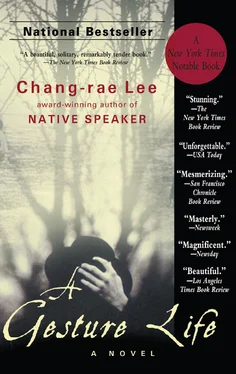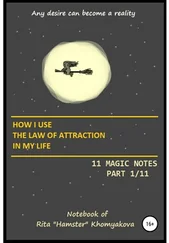After throwing away the junk mail and stacking the bills in order of payment, Renny carried the bundle of cards to the family room, where he and I set each one up on the mantel, so that it looked almost like Christmastime, when I still receive many cards from around town, though the number grows steadily smaller each year. He seemed quite satisfied with our work. “I wouldn’t bother trying to respond to all these,” he said. “There are too many. Besides, no one expects it. Just say thanks to everyone you see again in town. That’ll do, you’ll know. Just step out and go around and say how you feel.”
* * *
I WANT TO DO that very thing now, of course, slow at each door and awning and window case and flip down the passenger-side window of my old and lumbering gray Mercedes coupe and perhaps not so softly call out my general gratitude for the collegial thoughts and kindnesses, but it’s the selling hour, after all, and what would I be doing but disturbing the bustling morning of the town’s activity by showing myself in an odd one-man parade that evokes no one’s great nostalgia or longing. Even with a mantel full of cards, I know that more often than not in the past few years of my retirement, I’ve found the collective memory here to be shorter than I wished to believe, and getting shorter still. I’ve gone from being good Doc Hata to the nice old fellow to whoever that ancient Oriental is, a sentence (I heard it whispered last summer while paying for my lunch at the new Church Street Diner) which carries no hard malice or prejudice but leaves me in wonder all the same. For while I’m certain this sort of sad diminishment befalls every aging gentleman and — woman, and even those who once held modest position in the town’s day, I am beginning to suspect, too, that in my case it’s not only the blur of time and modern life’s general expectation of senescence, but rather the enduring and immutable fact of what I am, if not who; the simple constancy of my face. I must wonder then, too, whether a man like me should be happy enough with the accrued comforts of his life, accepting the minor losses, or else seek out those persons who no matter how sharp their opinion or emotion at least know him in all his particulars.
And so as I come upon our poor-cousin town of Ebbington, with its shut-in facades and littered sidewalks and grubby rash of convenience stores, I’m struck low with the thought of where I am actually going. Winding around the main traffic circle and then down the commercial strip to the Ebbington Center Mall, the place where my erstwhile daughter now makes her living, I think back to yesterday morning, when I called the store, a Lerner’s, and asked for the manager. After a long pause a voice came on to say, “Yes?” with hardly anything but the most solicitous tone, rising and heedful, the pitch of the word so terribly willing, and thus for me unanswerable, that I gently put down the handset.
It was Sunny, of course. And from the silent lingering, I was sure, she had sensed it was me. For the rest of the day and evening I tried to set the house right again, following Renny’s lead with my bin of mail, but somewhere in the course of the good, mundane work I had to rest for what first felt like a shortness of breath. Dr. Weil had warned that I might experience very brief episodes of asthma-like attacks, but the sensation was sharper than that, not like a constriction but a pointed, burning ache deep in the square of my chest, like a rifle shot passing cleanly through. And then, as swiftly as it struck, it was gone, leaving me half-gasping with my temple pressed against the divided panels of the French patio doors, to gaze outside at the late summer colors gloriously burnished by the majestic, clarified light that should, by most any account, be guide to my life’s last sweet dawning.
But the light, alas, is not. Rather, as I now make my way down the half-empty commercial boulevard, the traffic signals all changing to green so that I can hardly slow down or delay, the brightness seems hard and scrutinizing, everything I look upon appears overreal and starkly patent. To my dismay, I’ve arrived in what seems half the usual time. It being just after ten, the immense mall parking lot is practically deserted, save the hulking, older-model and econobox cars of the store employees, which sparsely line the far periphery in a gesture to the large weekend crowds that have long gone elsewhere. I pull in across the wide stretch of blacktop and although I have my choice I park perhaps a dozen spaces from the open spots nearest the entrance, and I wish I could obscure myself somehow as I walk to the grandly hideous, domed building, the lone customer heading inside.
The mall, everyone knows, is failing. There are other shoppers, of course, perhaps ten or fifteen wherever you look, but only a few are holding store bags of purchases. Mostly it’s single parents or teens who have bought an orange drink or cinnamon bun at the food court, strutting about for nothing better to do, or the people my age and beyond, who gather beneath the central glass dome of the mall, sitting on the benches set beneath the artificial palms, which replaced the real ones that looked wretched from Grand Opening day and finally died last year. The old folks await an early lunch, then will take a slow stroll or sit again to watch the passersby until the middle afternoon, when they’ll drive home before the rush hour and shut their eyes for a nap. The sense here, unlike in Bedley Run, is not of brisk and free commerce but rather the near-sickly, leaden atmosphere of a terminal, where people wait and linger under the fluorescent lights and kill time in any way they can.
At least a third of the shops are vacant, the bath and linens store gone under and the oak furniture place, too, and across the sorry divider of plastic ferns the Waterbeds Plus is in the midst of a closing sale, drastic final markdowns and reductions. The few notes of life in this wing come from the bulb-lettered signs of the Dollar Store, which is always in disarray and crowded with children, and the floor-to-ceiling display of the T-shirt and baseball cap seller, and the windows of the fish and pet shop, where dirty puppies climb and tumble over one another to scratch at the thick glass. There is the forlorn plastic playground of the Kiddie Kare hastily set up inside yet another empty store, and where the clock shop used to be, several Middle Eastern — looking men are papering the entrance with cardboard cutouts of goblins and cats and maniacal pumpkins, and unfurling a banner announcing the grand opening of their (temporary) store of Halloween gifts and costumes and crafts. There’s more than a month to go, but a few children already stand by reverently watching them slide their ladders from side to side as they trim the windows with black and orange crepe paper ribbons, hanging witches and skeletons.
The effect is festive, at least, a lively contrast to the dank grimness of this place, even if it is morbidity being celebrated. Perhaps it’s the most the Ebbington Center Mall can hope for now, the commemoration of pretty much anything. As I make my way down to the far wing where the Lerner’s is, the running skylights above dingy with neglect, the dark water stains creeping down the plaster, I am suddenly overwhelmed by a tide of pure and awful feeling. And so the questions beg: Is this the place where her child must play? Is that the seat where she takes her day’s break or lunch? Is this all the world she would have, so as not to be with me?
When Officer Como casually mentioned at the hospital that she had seen Sunny, I instantly saw in my mind the picture of her at the age when she first came to me. A skinny, jointy young girl, with thick, wavy black hair and dark-hued skin. I was disappointed initially; the agency had promised a child from a hardworking, if squarely humble, Korean family who had gone down on their luck. I had wished to make my own family, and if by necessity the single-parent kind then at least one that would soon be well reputed and happily known, the Hatas of Bedley Run. But of course I was overhopeful and naive, and should have known that he or she would likely be the product of a much less dignified circumstance, a night’s wanton encounter between a GI and a local bar girl. I had assumed the child and I would have a ready, natural affinity, and that my colleagues and associates and neighbors, though knowing her to be adopted, would have little trouble quickly accepting our being of a single kind and blood. But when I saw her for the first time I realized there could be no such conceit for us, no easy persuasion. Her hair, her skin, were there to see, self-evident, and it was obvious how some other color (or colors) ran deep within her. And perhaps it was right from that moment, the very start, that the young girl sensed my hesitance, the blighted hope in my eyes.
Читать дальше











![William Frith - John Leech, His Life and Work. Vol. 1 [of 2]](/books/747171/william-frith-john-leech-his-life-and-work-vol-thumb.webp)
![William Frith - John Leech, His Life and Work, Vol. 2 [of 2]](/books/748201/william-frith-john-leech-his-life-and-work-vol-thumb.webp)